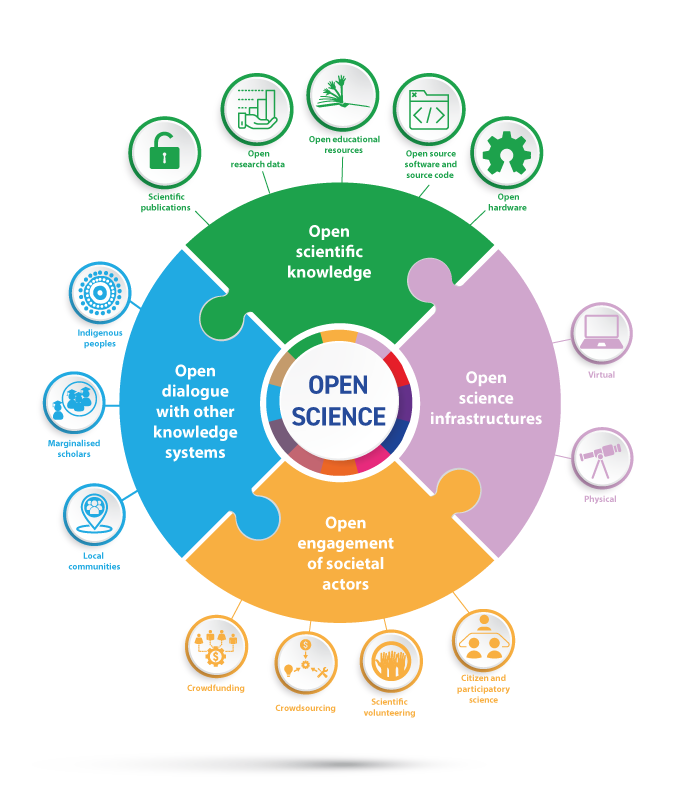Open Scholarship
Open scholarship is a concept that extends the principles of openness beyond scientific research to encompass all scholarly activities, including teaching, learning, and public engagement. By embracing open practices, scholars can enhance the accessibility, transparency, and impact of their work, fostering a more inclusive and collaborative academic ecosystem.
Saint Louis University is a member of HELIOS Open.
Key Principles of Open Scholarship
- Open Access: Making scholarly publications, educational resources, and research outputs freely available online, without subscription barriers, to facilitate widespread dissemination and knowledge sharing.
- Open Data: Sharing research data, along with appropriate metadata and documentation, to enable reuse, validation, and new discoveries across disciplines.
- Open Source: Utilizing and contributing to open source software, tools, and platforms, fostering collaboration, transparency, and cost-effectiveness in scholarly practices.
- Open Peer Review: Embracing transparent and inclusive peer review processes, where reviews are openly available, promoting accountability and constructive feedback.
- Open Pedagogy: Encouraging the creation, adaptation, and sharing of open educational resources (OERs) and open pedagogical practices, fostering equity and innovation in teaching and learning.
- Open Collaboration: Engaging in collaborative scholarly practices, fostering interdisciplinary collaborations, and embracing diverse perspectives to tackle complex challenges.
- Open Science: Applying open science principles, such as preregistration, reproducible research, and open notebooks, to enhance the transparency and reproducibility of scientific research.
Key Practices of Open Scholarship
- Open Publishing: Utilizing open access publishing models, such as preprints, open journals, and institutional repositories, to disseminate scholarly work freely and widely.
- Open Educational Practices: Creating, sharing, and adapting open educational resources (OERs) and adopting open pedagogical approaches that promote student-centered learning and collaboration.
- Open Knowledge Sharing: Participating in open knowledge-sharing platforms, such as blogs, social media, and public lectures, to engage with broader audiences and facilitate the exchange of ideas.
- Open Collaboration Tools: Embracing open collaboration tools and platforms, such as open-source software, version control systems, and virtual research environments, to facilitate collaborative work.
- Open Advocacy: Advocating for open scholarship principles and practices within academic communities, institutions, and funding agencies, promoting cultural shifts toward openness and inclusivity.
- Open Metrics: Developing and utilizing alternative metrics (altmetrics) to measure the broader impact of scholarly outputs, beyond traditional citation-based metrics.
- Open Innovation: Fostering open innovation by engaging with diverse stakeholders, including industry, policymakers, and the public, to co-create solutions and drive societal impact.
By adopting these principles and practices, scholars can foster a more transparent, collaborative, and inclusive academic ecosystem, enhancing the accessibility, impact, and societal relevance of their work across disciplines and sectors.
